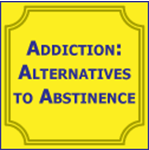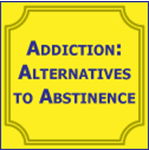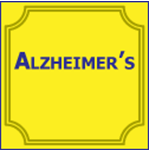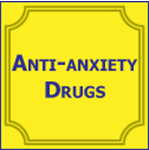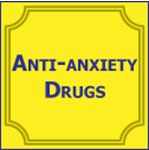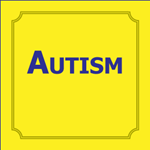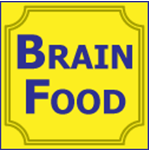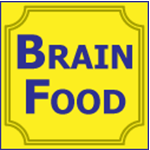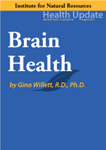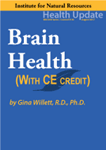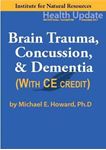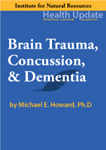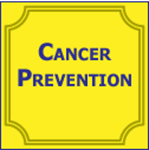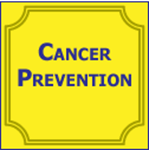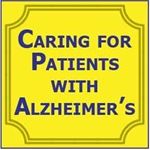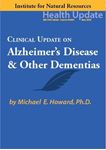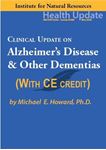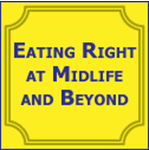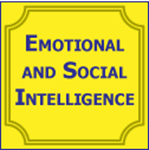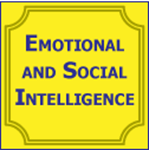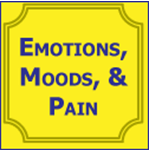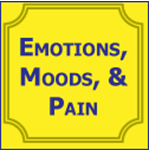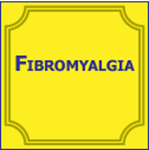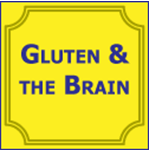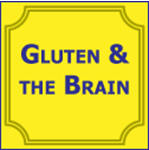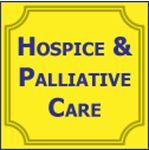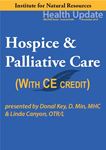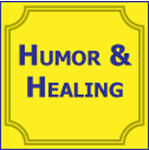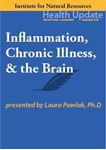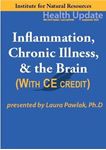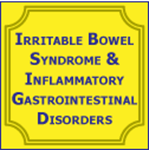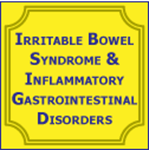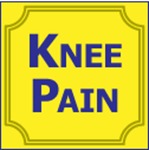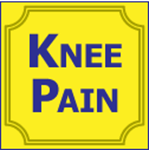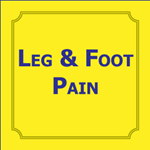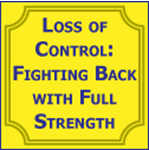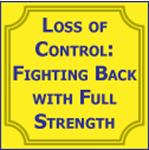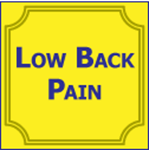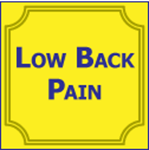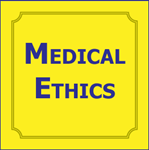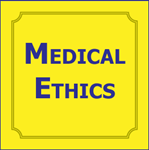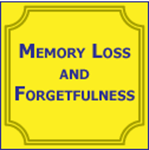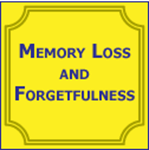You have no items in your shopping cart.
NAB Approved for Nursing Home Administrators
Addiction: Alternatives to Abstinence
Identifies the three major treatment models for addictive behaviors and a brief history of each: (a) the moral model, (b) the medical model, (c) the harm-reduction model. Describes the most recent research on the effectiveness of abstinence and harm-reduction addiction treatment programs and who each approach is best suited for. Lists protective behavioral strategies (PBS) used in moderating alcohol use among college students. Identifies the risk factors for “overdose” and list the strategies for prevention. Describes approaches to treating opioid dependence and the benefits and drawbacks of each.
$30.00
Addiction: Alternatives to Abstinence - Ebooklet
Identifies the three major treatment models for addictive behaviors and a brief history of each: (a) the moral model, (b) the medical model, (c) the harm-reduction model. Describes the most recent research on the effectiveness of abstinence and harm-reduction addiction treatment programs and who each approach is best suited for. Lists protective behavioral strategies (PBS) used in moderating alcohol use among college students. Identifies the risk factors for “overdose” and list the strategies for prevention. Describes approaches to treating opioid dependence and the benefits and drawbacks of each.
$25.00
Alzheimer's
Describes Alzheimer’s disease. Identifies the 10 warning signs of Alzheimer’s disease. Explains the benefits of early diagnosis of Alzheimer’s disease. Enumerates the goals of Alzheimer’s treatment.
$30.00
Anti-Anxiety Drugs
Outlines the diagnostic issues of various anxiety disorders including GAD, panic disorder, OCD, and social phobia. Identifies differentials of anxiety disorders and the nomenclature of phobias and related conditions. Describes commonly used pharmacological agents and their interactions, side effects, and expected effects. Addresses the issue of co-administration of these drugs with dental drugs. Identifies approaches to co-management of anxiety and depression, anxiety and alcohol-related disorders, and acute toxicity of benzodiazepines.
$30.00
Anti-Anxiety Drugs - Ebooklet
Outlines the diagnostic issues of various anxiety disorders including GAD, panic disorder, OCD, and social phobia. Identifies differentials of anxiety disorders and the nomenclature of phobias and related conditions. Describes commonly used pharmacological agents and their interactions, side effects, and expected effects. Addresses the issue of co-administration of these drugs with dental drugs. Identifies approaches to co-management of anxiety and depression, anxiety and alcohol-related disorders, and acute toxicity of benzodiazepines.
$25.00
Autism - 3 Hours
Describes the differences between the previous Diagnostic and Statistical Manual of Mental Disorders (DSM-IV), and the current one (DSM-5) in terms of how autism, autism spectrum disorder (ASD) and related disorders are viewed and diagnosed. Identifies the physiological, familial, and psychological issues in the clinical diagnosis of autism spectrum disorder. Identifies the issues of toxicity from heavy metal (mercury, lead) and other pathogenic factors in the development of autism spectrum disorder. Identifies medications used in management of various clinical resentations and comorbidities of autism spectrum disorder. Discusses appropriate nonpharmacological (general health, psychological, and behavioral) approaches to the treatment of autism spectrum disorder.
$30.00
Brain Food
Discusses how foods and vitamins may improve memory and brain function. Describes how the DASH and Mediterranean diets may play a key role in brain health. Explains how food choices and supplements may play a role in Alzheimer’s disease and brain aging. Describes an optimal diet for brain health.
$30.00
Brain Food - Ebooklet
Discusses how foods and vitamins may improve memory and brain function. Describes how the DASH and Mediterranean diets may play a key role in brain health. Explains how food choices and supplements may play a role in Alzheimer’s disease and brain aging. Describes an optimal diet for brain health.
$25.00
Brain Health - DVD - 6 hours (w/Home-study exam)
The course “Brain Health: Mood, Metabolism and Cognition” provides an overview of key factors that can improve mental health, as well as to ensure cognitive health. This course includes a discussion of: (1) the importance of stress management, (2) physical activity, (3) weight management, (4) early diagnosis and proper management of diabetes and pre-diabetes, (5) key dietary factors to “defend the castle”, including the concept of “nutritional psychiatry”, (6) ways to improve gut health so as to improve brain health, (7) proper sleep hygiene, (8) the importance of oral health, and, finally, (9) how to incorporate some of the characteristics of our ancestors’ lifestyle (i.e., address our modern “Paleo-Deficit disorder).
Health professionals who complete this course will gain a much fuller understanding of the factors that impact brain health, as well as a range of techniques to help themselves, and their patients/clients, improve/preserve cognitive function and ensure positive emotional and mental health.
$83.00
Brain Health - Streaming Video - 6 hours (w/Home-study exam)
The course “Brain Health: Mood, Metabolism and Cognition” provides an overview of key factors that can improve mental health, as well as to ensure cognitive health. This course includes a discussion of: (1) the importance of stress management, (2) physical activity, (3) weight management, (4) early diagnosis and proper management of diabetes and pre-diabetes, (5) key dietary factors to “defend the castle”, including the concept of “nutritional psychiatry”, (6) ways to improve gut health so as to improve brain health, (7) proper sleep hygiene, (8) the importance of oral health, and, finally, (9) how to incorporate some of the characteristics of our ancestors’ lifestyle (i.e., address our modern “Paleo-Deficit disorder).
Health professionals who complete this course will gain a much fuller understanding of the factors that impact brain health, as well as a range of techniques to help themselves, and their patients/clients, improve/preserve cognitive function and ensure positive emotional and mental health.
$83.00
Brain Trauma, Concussion, & Dementia - 6 Hours - Streaming Video (w/Home-study exam)
Describes the brain structures and functions that are most vulnerable to trauma. Outlines the major steps in assessing patients with brain trauma and predicting disability. Discusses key clinical features of concussions, penetrating head injuries, and blast injuries. Describes the relationship between brain trauma and dementing illness such as Alzheimer’s and chronic traumatic encephalopathy. Outlines the rehabilitation strategies most likely to improve outcomes in patients with brain trauma. Discusses the practical steps to prevent brain trauma from motor vehicle accidents, falls, and sports. Describes how the information in this course can be utilized to improve patient care and patient outcomes. Describes for this course, the implications for nursing, dentistry, mental health, and other health professions.
$83.00
Brain Trauma, Concussion, & Dementia - DVD - 6 Hours (w/Home-study exam)
Describes the brain structures and functions that are most vulnerable to trauma. Outlines the major steps in assessing patients with brain trauma and predicting disability. Discusses key clinical features of concussions, penetrating head injuries, and blast injuries. Describes the relationship between brain trauma and dementing illness such as Alzheimer’s and chronic traumatic encephalopathy. Outlines the rehabilitation strategies most likely to improve outcomes in patients with brain trauma. Discusses the practical steps to prevent brain trauma from motor vehicle accidents, falls, and sports. Describes how the information in this course can be utilized to improve patient care and patient outcomes. Describes for this course, the implications for nursing, dentistry, mental health, and other health professions.
$83.00
Cancer Prevention
Describes the role tobacco plays in various kinds of cancers. Identifies the impact of estrogens, and viral and bacterial pathogens, on the development of cancer. Describes the lifestyle and dietary changes that can help prevent the development of cancer. Discusses the benefits and drawbacks associated with some of the tools used to screen for cancer. Identifies the role of chemopreventive agents, and how they may be able to curtail the onset of cancer, or its recurrence.
$30.00
Cancer Prevention - Ebooklet
Describes the role tobacco plays in various kinds of cancers. Identifies the impact of estrogens, and viral and bacterial pathogens, on the development of cancer. Describes the lifestyle and dietary changes that can help prevent the development of cancer. Discusses the benefits and drawbacks associated with some of the tools used to screen for cancer. Identifies the role of chemopreventive agents, and how they may be able to curtail the onset of cancer, or its recurrence.
$25.00
Caring for Patients with Alzheimer’s
Lists methods to assist patients with memory and communication problems. Lists strategies to assist patients with mood and behavioral problems. Identifies strategies to assist patients with physical and personal hygiene problems. Identifies approaches to mealtime and nutritional health. Identifies strategies for handling exercise, socializing, and other activities. Discusses when and how to consider alternative living arrangements including respite care. Describes the legal and financial concerns that need to be addressed.
$30.00
Clinical Update on Alzheimer's Disease & Other Dementias - DVD - 6 Hours (w/home-study exam)
Describes the differences between normal and abnormal brain aging. Lists measures to preserve brain function and reduce the risk for cognitive decline. Defines dementia and describe common dementia syndromes. Describes the major characteristics of and treatments for Alzheimer’s disease. Lists medications and common clinical conditions that can cause dementia-like symptoms. Describes how the information in this course can be utilized to improve patient care and patient outcomes. Describes for this course, the implications for nursing, dentistry, mental health, and other health care professions.
$83.00
Clinical Update on Alzheimer's Disease & Other Dementias - Streaming Video - 6 Hours (w/Home-study exam)
Describes the differences between normal and abnormal brain aging. Lists measures to preserve brain function and reduce the risk for cognitive decline. Defines dementia and describe common dementia syndromes. Describes the major characteristics of and treatments for Alzheimer’s disease. Lists medications and common clinical conditions that can cause dementia-like symptoms. Describes how the information in this course can be utilized to improve patient care and patient outcomes. Describes for this course, the implications for nursing, dentistry, mental health, and other health care professions.
$83.00
Eating Right at Midlife & Beyond
Recognizes the physiological changes that typically occur with age. Describes the programmed and error theories of aging. Recognizes the contribution of genetics to individual lifespan. Explains oxidative stress and the role of antioxidants in combating it. Lists the sources of antioxidants and the foods that provide the best antioxidant benefits. Outlines a healthy eating plan for older adults.
$30.00
Emotional & Social Intelligence
Explains the concept of emotional intelligence. Describes the relationship between emotions and the brain. Outlines how to use emotional intelligence to reduce negative moods. Explains the concept of social intelligence and its components. Identifies the neural circuitry underlying interpersonal behavior. Describes educational programs designed to heighten emotional and social intelligence.
$30.00
Emotional & Social Intelligence - Ebooklet
Explains the concept of emotional intelligence. Describes the relationship between emotions and the brain. Outlines how to use emotional intelligence to reduce negative moods. Explains the concept of social intelligence and its components. Identifies the neural circuitry underlying interpersonal behavior. Describes educational programs designed to heighten emotional and social intelligence.
$25.00
Emotions, Moods, & Pain
Lists and describe the six basic emotions that have unique facial expressions. Explains the difference between emotions and moods. Discusses the relationship between emotions, moods, and pain. Identifies brain structures and neurochemicals that play a role in both moods and pain. Discusses the relationship of pain to both acute stress and chronic stress. Lists the similarities between stress management and pain management. Identifies the similar brain areas involved in both physical and emotional pain. Explains the interactions between anxiety disorders, depression, and pain. Discusses cognitive behavioral therapy and its role in pain management.
$30.00
Emotions, Moods, & Pain - Ebooklet
Lists and describe the six basic emotions that have unique facial expressions. Explains the difference between emotions and moods. Discusses the relationship between emotions, moods, and pain. Identifies brain structures and neurochemicals that play a role in both moods and pain. Discusses the relationship of pain to both acute stress and chronic stress. Lists the similarities between stress management and pain management. Identifies the similar brain areas involved in both physical and emotional pain. Explains the interactions between anxiety disorders, depression, and pain. Discusses cognitive behavioral therapy and its role in pain management.
$25.00
Fibromyalgia
Identifies the issues in the pathogenesis of fibromyalgia as well as controversies regarding the clinical presentations of this condition. Reviews the differential diagnosis of fibromyalgia, including differentiation from myofascial pain syndromes, chronic fatigue syndrome (CFS), irritable bowel syndrome, and other conditions. Identifies treatment regimens and management options for fibromyalgia, including “integrative” treatments (exercise and herbal and over-the-counter remedies). Explains to patients the role of sleep disorders in the pathogenesis of fibromyalgia and in the clinical management of this condition.
$30.00
Globesity
It is estimated that 1.4 billion adults—one in three across the globe—are overweight. Registered dietitian and health writer Clare Fleishman explores surprising new suspects contributing to our planet’s expanding girth, including air conditioning, drugs, pollution, and others which get little notice as lack of will power shoulders the blame. This important work examines how we live in a new century and why obesity has become a major killer from the American Midwest to the cities of Europe and across the deserts of Africa.
$40.00
Gluten & the Brain
Discusses the role of gluten in celiac disease and non-celiac glucose sensitivity. Lists the main food sources of gluten. Identifies the neuropsychiatric components of the gut-brain link to gluten sensitivity. Describes the possible role of the microbiome in gluten sensitivity. Lists the components of a gluten-free diet. Identifies the potential disadvantages of eliminating gluten from the diet.
$30.00
Gluten & the Brain - Ebooklet
Discusses the role of gluten in celiac disease and non-celiac glucose sensitivity. Lists the main food sources of gluten. Identifies the neuropsychiatric components of the gut-brain link to gluten sensitivity. Describes the possible role of the microbiome in gluten sensitivity. Lists the components of a gluten-free diet. Identifies the potential disadvantages of eliminating gluten from the diet.
$25.00
Hospice & Palliative Care
Discusses the goals and challenges involved in palliative care. Lists key aspects of addressing advanced medical directives, do-not-resuscitate (DNR) orders, mechanical ventilation, and tube feedings at the end of life. Describes major symptoms encountered in terminal illness and treatment options. Outlines common sources of mental, emotional, and spiritual suffering at the end of life and measures to ease them. Identifies key factors to improve communication with the patient and family members and ease caregiver stress.
$30.00
Hospice & Palliative Care - streaming video - 3 Hours (w/Home-study exam)
Reviews the recent Medicare law regarding end-of-life discussions with patients and define options for patient and provider consideration. Discusses the psycho-social implications of death and dying among varied cultures and religions and how this effects healthcare delivery. Identifies the concerns most expressed by the dying. Identifies patient rights to live with dignity and as much independence as possible until the end. Cites the philosophy, history and tradition of death and dying over time and how current beliefs developed. Discusses heroic measures verses natural death and discuss caregiver support. Describes the stages of death, the timeline of what happens to the physical remains after death, and care of the body after death. Identifies necessary legal documents regarding death, disposition of the body, family and patient rights, and how these important statutes assist the poor and the marginalized.
$49.00
Humor & Healing
Describes the different definitions of humor. Identifies the various theories of humor. Discusses the physiology and therapeutic effects of laughter. Discusses the use of humor in health care settings and the role of humor for health care professionals. Defines the relationship between children and humor and the elderly and humor. Identifies some strategies for adding humor to health care practices.
$30.00
Inflammation, Chronic Illness, & the Brain - DVD - 6 Hours (w/Home-study exam)
Identifies clinical signs & symptoms of inflammation. Describes the connections between inflammatory processes and chronic illness. Describes the role of inflammation in specific illnesses such as heart disease, COPD, diabetes, arthritis, and dementia. Lists practical strategies to reduce levels of inflammation in clinical practice. Explains the rationale for good dental prophylaxis and skin care in patients with chronic illness. Describes how the information in this course can be utilized to improve patient care and patient outcomes. Describes, for this course, the implications for dentistry, mental health, and other health professions.
$83.00
Inflammation, Chronic Illness, & the Brain - Streaming Video - 6 Hours (w/home-study credit)
Identifies clinical signs & symptoms of inflammation. Describes the connections between inflammatory processes and chronic illness. Describes the role of inflammation in specific illnesses such as heart disease, COPD, diabetes, arthritis, and dementia. Lists practical strategies to reduce levels of inflammation in clinical practice. Explains the rationale for good dental prophylaxis and skin care in patients with chronic illness. Describes how the information in this course can be utilized to improve patient care and patient outcomes. Describes, for this course, the implications for dentistry, mental health, and other health professions.
$83.00
Irritable Bowel Syndrome
Identifies the differences between functional gastrointestinal disorders and inflammatory bowel diseases. Explains the pathophysiology of irritable bowel syndrome (IBS) and identifies appropriate treatment strategies. Discusses the pathophysiology of Crohn’s disease and ulcerative collitis and identify appropriate treatment strategies. Identifies psychosocial issues in chronic gastrointestinal disorders. Discusses new research on the causes of gastrointestinal disorders, such as peptic ulcer disease.
$30.00
Irritable Bowel Syndrome - Ebooklet
Identifies the differences between functional gastrointestinal disorders and inflammatory bowel diseases. Explains the pathophysiology of irritable bowel syndrome (IBS) and identifies appropriate treatment strategies. Discusses the pathophysiology of Crohn’s disease and ulcerative collitis and identify appropriate treatment strategies. Identifies psychosocial issues in chronic gastrointestinal disorders. Discusses new research on the causes of gastrointestinal disorders, such as peptic ulcer disease.
$25.00
Keeping Balance & Preventing Falls
Lists causes and health hazards of falls. Outlines methods of preventing falls among the elderly. Lists the techniques for improving balance among the elderly. Describes procedures to prevent falls and reduce the risks of injury.
$30.00
Keeping Balance & Preventing Falls - Ebooklet
Lists causes and health hazards of falls. Outlines methods of preventing falls among the elderly. Lists the techniques for improving balance among the elderly. Describes procedures to prevent falls and reduce the risks of injury.
$25.00
Knee Pain
Describes the anatomical structure of the knee. Identifies the different types of knee injuries and their manifestations. Describes the difference between major and minor injuries and the causes of knee pain. Explains strategies for preventing knee pain. Discusses the medical and surgical options now available to treat knee pain/injury.
$30.00
Knee Pain - Ebooklet
Describes the anatomical structure of the knee. Identifies the different types of knee injuries and their manifestations. Describes the difference between major and minor injuries and the causes of knee pain. Explains strategies for preventing knee pain. Discusses the medical and surgical options now available to treat knee pain/injury.
$25.00
Leg & Foot Pain
Describes how leg and foot pathologies can impair functional ability. Describes the role of different disciplines in the diagnosis
and treatment of leg and foot pathologies. Outlines evidence-based interventions for each condition. Identifies risk factors for each leg/foot condition. Identifies how this course will impact his/her current practice and interaction with patients, clients, and families.
$30.00
Living to be 100 - 2nd edition
Do you want to live the longest, healthiest, happiest life you can with the best mental and physical functioning? This home-study course is literally about the secret to life: the lifestyle choices you can make that will increase the odds of having the longest and healthiest life you can. You will find out that there are 16 lifestyle characteristics that these oldest people tend to have in common, no matter where they live in the world.
$35.00
Living to be 100 2nd edition - EBOOK
Do you want to live the longest, healthiest, happiest life you can with the best mental and physical functioning? This home-study course is literally about the secret to life: the lifestyle choices you can make that will increase the odds of having the longest and healthiest life you can. You will find out that there are 16 lifestyle characteristics that these oldest people tend to have in common, no matter where they live in the world.
$20.00
Living to be 100 2nd edition - EBOOK only *NO CE
Do you want to live the longest, healthiest, happiest life you can with the best mental and physical functioning? This home-study course is literally about the secret to life: the lifestyle choices you can make that will increase the odds of having the longest and healthiest life you can. You will find out that there are 16 lifestyle characteristics that these oldest people tend to have in common, no matter where they live in the world.
$15.00
Loss of Control: Fighting Back with Full Strength
Describes the issues related to stress-induced feelings of loss of control, the physiological and psychological mechanisms behind these issues, and means of coping with them. Identifies grief-, aggression- and suicide-related trends in both society and the individual and identifies the neurobiologic mechanisms involved. Develops approaches to the rehabilitation of patients who have loss of control issues that lead to substance abuse. Identifies patients at risk for disorders that may be triggered by the feeling of loss of control.
$30.00
Loss of Control: Fighting Back with Full Strength - Ebooklet
Describes the issues related to stress-induced feelings of loss of control, the physiological and psychological mechanisms behind these issues, and means of coping with them. Identifies grief-, aggression- and suicide-related trends in both society and the individual and identifies the neurobiologic mechanisms involved. Develops approaches to the rehabilitation of patients who have loss of control issues that lead to substance abuse. Identifies patients at risk for disorders that may be triggered by the feeling of loss of control.
$25.00
Low Back Pain
Defines low back pain. Describes the prevalence of this condition within the U.S. Identifies the different causes of low back pain. Describes some of the treatment approaches employed. Discuss ways to prevent low back pain.
$30.00
Low Back Pain - Ebooklet
Defines low back pain. Describes the prevalence of this condition within the U.S. Identifies the different causes of low back pain. Describes some of the treatment approaches employed. Discuss ways to prevent low back pain.
$25.00
Major Depression & Bipolar Disorders - 3rd edition
This book contains a synopsis of the genetic, biological, and psychological theories pertaining to bipolar spectrum disorders. An update of diagnostic considerations, assessment instruments, and evidence-based treatment techniques commonly employed in diagnosing, assessing, and treating bipolar spectrum disorderpatients is provided. The most recent literature is presented throughout the book concerning the appropriate data-based applications, outcomes, and limitations of the assessment and treatment procedures.
$35.00
Medical Ethics
Identifies and discusses the principles of medical ethics. Defines and distinguishes between ethics, morals, and values. Identifies the ethical obligations in a clinician-patient relationship. Explains the issues surrounding patient consent, including informed consent, voluntary consent, and competent consent. Discusses ethical principles in preserving patients’ confidentiality, including the requirements of the Health Insurance Portability and Accountability Act (HIPAA). Explains the legal documents that apply to end-of-life health care decisions and the ethical principles that apply to the right-to-die controversy. Identifies the core values and code of ethics as they should be applied within the medical professions.
$30.00
Medical Ethics - Ebooklet
Identifies and discusses the principles of medical ethics. Defines and distinguishes between ethics, morals, and values. Identifies the ethical obligations in a clinician-patient relationship. Explains the issues surrounding patient consent, including informed consent, voluntary consent, and competent consent. Discusses ethical principles in preserving patients’ confidentiality, including the requirements of the Health Insurance Portability and Accountability Act (HIPAA). Explains the legal documents that apply to end-of-life health care decisions and the ethical principles that apply to the right-to-die controversy. Identifies the core values and code of ethics as they should be applied within the medical professions.
$25.00
Memory Loss & Forgetfulness
Identifies the memory changes that take place in normal aging. Discusses how mild cognitive impairment (MCI) differs from memory loss in normal aging and from dementia. Describes the cognitive and personality changes that take place in Alzheimer’s disease. Identifies cognitive and personality changes that occur in a range of non-Alzheimer’s disease dementias.
$30.00
Memory Loss & Forgetfulness - Ebooklet
Identifies the memory changes that take place in normal aging. Discusses how mild cognitive impairment (MCI) differs from memory loss in normal aging and from dementia. Describes the cognitive and personality changes that take place in Alzheimer’s disease. Identifies cognitive and personality changes that occur in a range of non-Alzheimer’s disease dementias.
$25.00

